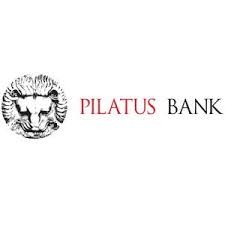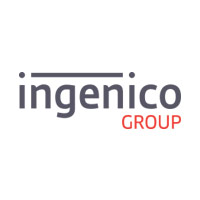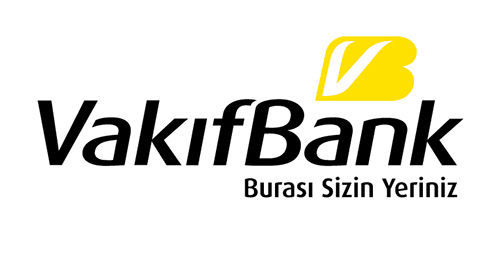Published
- 03:00 am

Related News

Bo Harald
Chairman/Founding Member at ZEF, Transmeri, Real Time Economy Program
Take structured e-invoicing (PDFs are pictures - worse than paper). Steps: 1. Go for a four courner model and choose a standard for all to use. see more
- 03:00 am

Fidor, the innovative provider of digital banking solutions that helps banks launch and run their own digital brand, today puts its expansion strategy into action through its newest office extension in Dubai Silicon Oasis, the integrated free zone technology park.
Dr Juma Al Matrooshi, Deputy CEO Operations & Client Affairs at Dubai Silicon Oasis Authority and Matthias Kröner, Founder and CEO of Fidor led the inauguration of Fidor’s regional headquarters in the presence of senior officials from DSOA and Fidor.
The Middle East is quickly becoming an important region for digitalisation, with digital consumer adoption in the United Arab Emirates and Bahrain being amongst the top countries in the world. The region has more than 100 percent smartphone penetration and over 70 percent social media adoption—even higher than the United States, according to McKinsey’s ‘Digital Middle East’ report.
Given the high adoption rate, businesses and government bodies within the region have realised the need to innovate and transform themselves in response to the growing needs of these new tech savvy consumers and considering that Fintech is emerging as one of the most rapidly growing industries.
With the reinforcement of its presence in the region, Fidor also aims at extending its solutions and services’ availability across Africa responding to the financial needs of dispersed population leveraging on its cutting-edge fidorOS platform.
Fidor is committed to contributing to the region’s growth by helping strengthen the fintech community, and support the region’s economy through local employment and new talent searches. Fidor plans to further increase the number of employees in line with the newly expanded regional hub in Dubai and to answer to a rapidly growing global customer base. Recruitment for these opportunities is already underway.
Since the launch of its Middle East Africa regional office in Dubai Silicon Oasis, Fidor Solutions has experienced rapid growth and high demands from banks wishing to shift their current offerings to digital banking for their customers. Last year, Fidor signed a partnership agreement with Abu Dhabi Islamic Bank to launch their first digital brand.
The strategic location of Dubai Silicon Oasis, and its position as a reputable and much sought-after ground for technology-based companies, leverage the free zone as ideal headquarters for Fidor. The UAE has become a central hub for innovative fintech companies and is at the crossroads of many regions. Currently, the Fidor Group has offices in Munich, Berlin, New York, Singapore and Dubai, and is operating in the UK and France.
Commenting on the expansion, Matthias Kröner, founder and CEO of Fidor said: “When founding Fidor Bank and eventually Fidor Solutions, I could not have imagined the path that lie ahead. Seeing the company go from a small fintech company and grow into a global player that works with many industry leaders, I’m incredibly proud of the work our team has done. Our vision resonates with the market and is driven by consumers. Dubai is the natural next step for us at Fidor, especially because of the region’s growth within ecommerce, payments and its overall digitisation. As we continue to grow and thrive, I only expect more great things as we expand across more borders and into new regions and markets.”
Dr Juma Al Matrooshi, said: “Since its establishment, Dubai Silicon Oasis Authority has worked relentlessly to establish Dubai Silicon Oasis as an enabling hub that caters to the needs of technology-focused startups and multinational corporations. Today, our efforts have reinforced DSO’s status and credentials as the go-to free zone offering tech enterprises top-of-the-line facilities, services, and ease of access. We embrace efficiency as a core value that enables us to meet the dynamic and ever-expanding scope of requirements within the technology sector in the UAE and the wider region."
He added: “We congratulate Fidor Solutions on its momentous step in expanding its regional presence in the Middle East. We are confident the digital banking solutions provider will significantly benefit from its location in our integrated hi-tech park.”
Gé Drossaert, Group CCO at Fidor said, “The growth of our UAE office aligns with our long-term strategy for global expansion. In addition to our ambition to excel within digital banking solutions that are relevant to customers, we’re conscious of our impact on the way we will bank in the future. It is also a testimony to offer service excellence to our growing global client base.”
Related News
- 08:00 am

The Head of Legal at Pilatus Bank discusses the IV Anti-Money Laundering Directive (IV AML Directive) which was enacted on 25 June 2015, and is the most sweeping anti-money laundering legislation in Europe in several years that came into force on 26 June 2017. Upon the inaction of the Directive, Vera Jourova, Commissioner for Justice, Consumers and Gender Equality, recognised that, "Terrorists and criminals still find ways to finance their activities and to launder illicit gains back into the economy. The new rules as of today are crucial to closing further loopholes. I urge all Member States to put them in place without delay: lower standards in one country will weaken the fight against money laundering and terrorist financing across the EU."
The Head of Legal at Pilatus Bank believes that the commitment to an increasingly hostile environment for money laundering and terrorist financing is evident at EU Parliament, European Commission and Council of the European Union level. The IV AML Directive has reinforced the risk assessment obligation and extended the role of the EU Commission to that of direct participation in ensuring the successful outcome of the legislation originally proposed by it.
Dr. Claude-Anne Sant Fournier at Pilatus Bank further explains that on the 5 July 2016, the European Commission published a fact sheet entitled 'Questions & Answers: AML Directive', which included commentary on the performance of a supranational risk assessment (SRA) of money laundering and terrorist financing risks. The feedback provided by the European Commission on the SRA is easily applied to the national risk assessment (NRA). The SRA steers the Commission to develop new policy and initiatives at EU level that ". are both evidence based and tailored to the actual risks". Likewise, the NRA carried out by a Member State ought to lead it to better understand the money laundering and terrorist financing risks arising within its territory as well as efficiently allocate resources to mitigate those risks. SRAs and NRAs are, ultimately, intended for Member States and the regulated sector ". to avoid blind spots and respond to the evolving nature of terrorism financing . to analyse the risks and propose mitigating actions .". Dr. Sant Fournier of Pilatus Bank noted that any Member State which undertakes a relevant NRA should see its benefits reflected in a functional transposition of the IV AML Directive, and possibly forecast future anti-money laundering legislation mandated at EU level.
Dr. Sant Fournier of Pilatus Bank observed that each Member State has reached disparate milestones in its respective NRA. The IV Anti-Money Laundering Directive came into force on 26 June of this year and Malta, among a few other Member States, is yet to transpose the Directive within local legislation. The Head of Legal at Pilatus Bank states, "With respect to our practical implementation of the Directive in daily practice, the Bank has been on the forefront of using the guidance issued by the UK to make sure we adhere to high standards in this regard."
Sebastiano Laviola, the financial attache for the Permanent Representation of Italy to the EU, who was also a negotiator for the IV AML Directive, recommended that, ". nations should also move quickly to implement legal changes mandated by the IV AML Directive". Dr. Sant Fournier argues that the wisdom shared by Laviola and Jourova provides guidance to banks and subject persons, like Pilatus Bank, dealing with the current situation. She concludes, "Pilatus Bank, nonetheless, strives to remain at the forefront of compliance by keeping abreast of international developments on the anti-money laundering and terrorist financing front, not only to strengthen its future conduct, but also its responsibility towards its clients and counterparts."
Related News
- 07:00 am

Nasdaq and Strate (Pty) Ltd, the South African CSD, announced today an agreement for Nasdaq to deliver a new blockchain solution that would bring electronic voting to the South African capital markets. The solution will allow Strate, in conjunction with key stakeholders in the market, to provide general meeting services and give shareholders an easy, user-friendly and secure tool for voting remotely. The solution is based on the successful proof of concept (PoC) developed for Nasdaq's Estonia market. In addition, Strate will contribute to the ongoing market development of e-Voting technology.
"We are very excited about our initiative with Nasdaq and what it means for the South African financial markets," said Tanya Knowles, Managing Executive of Fractal Solutions, a division of Strate (Pty) Ltd. "One needs to understand that the environment at the moment is very administratively intensive, which means there are many inefficiencies and risks associated with it. This is not ideal in today's electronic age, as technology like blockchain can serve as a solution. The solution aims to service our clients' needs across the market from transfer secretaries to issuers, custodians, asset managers and those holding shares in listed companies. Given that it is an end-to-end solution - from the time a meeting is announced and all the way through the voting process to the publishing of results - it means that all stakeholders will truly benefit within the process."
"A major indicator of progress in the capital markets is when technology not only bolsters performance, but also improves efficiency and transparency," said Lars Ottersgård, Executive Vice President and Head of Market Technology, Nasdaq. "By leveraging blockchain, we are able to reduce friction in the voting and proxy assignment process and also ensure that all information is transparent to stakeholders when required and with the proper security, governance and risk procedures in place. We are proud to welcome Strate and the South African capital markets to the Nasdaq family and to support their efforts in evolving their governance processes through new technological innovation."
Benefits to Shareholders, Issuers and Proxies:
- Remote participation and proxy assignment;
- Submitting votes before and/or voting during the general meeting;
- Secure (multifactor) identification of shareholders and their representatives;
- Information about meetings, agenda items and management proposals is easily reachable;
- Full track record of assigned proxies (i.e. chain of proxies) and casted votes;
- Online / real-time access to voting results;
- Data is saved in an immutable ledger;
- Transparency and auditability of voting results for listed companies; and
- The end-to-end management of general meetings from announcement to results.
Benefits to CSDs, Exchanges and Market Infrastructures:
- Reduced complexity through end-to-end general meeting administration in a single solution - from notification and material distribution to voting management and reporting at the general meeting;
- Enhanced insight through real-time data access to securities holders, holdings and votes and ability to view full voting history on a single account;
- Safety, security and speed benefits of leveraging blockchain technology with a fully auditable view of actions recorded in the immutable ledger; and
- A standard Application Programme Interface.
Related News
- 01:00 am

Spending growth across the European Union is on track to outstrip the US this Black Friday, according to analysis by Ingenico, the global leader in seamless payment. Based on its payments data from 2016, spending uplift in the bloc is expected to be in excess of 450% above an average Friday, nearly three times the 162% spend increase in the US, and higher than the UK’s 318%. Transaction spending values are also anticipated to be significantly greater across the EU over the November sales bonanza.
“In light of these forecasts, retailers of all shapes and sizes should consider ‘opening the borders’ to Europe to take advantage of continental Black Friday fever to supplement sales performance at home,” said Gabriel de Montessus, VP Retail Global Product and Marketing for Ingenico Group. “As Black Friday enthusiasm slows in the US and the UK, retailers in these markets should be looking to mainland Europe for new opportunities to significantly increase purchase volumes and values over the festive sales period. Retailers with a cross-border presence are likely to be the big winners this year.”
Online shopping is expected to be a key channel for sales this year throughout the EU. Last year, Ingenico processed 29% more online payments during the Black Friday weekend compared to the same period in the previous year, and the business has already made preparations to handle an even greater number of online payments in 2017.
“This growth in online shopping across the continent provides a great opportunity for smaller UK retailers looking to take advantage of booming Black Friday participation in Europe,” added de Montessus. “Provided they have the infrastructure in place – not just a great website, but a frictionless payments system tailored to local payment preferences and languages – they can tap into this peak in demand to expand their customer base far beyond their home market, laying strong foundations to grow their business in the future.”
Ingenico’s findings also warn retailers about the importance of getting their payment acceptance strategy right this Black Friday. Retailers are typically more aggressive when it comes to accepting payments during the sales period, declining 3% fewer transactions than an average day. This can lead to a significant bump in sales – with IMRG estimating £1.23bn in UK Black Friday sales last year, this equates to a significant £37m extra accepted.
However, such an aggressive approach can have repercussions further down the line, as retailers have to process time-consuming returns requests. According to figures from Ingenico, 54% of the total number of returns from Black Friday were made by mid-December and 70% by Christmas Eve. Handling these during the busy trading days of December can interfere with the processing of new transactions. Meanwhile, returning goods ties up stock in the mail system, resulting in unwelcome stock shortages that can lead to consumers abandoning a sale.
“Black Friday isn’t the only important trading period at this point of the year. Retailers in the UK and elsewhere in Europe need to remember that they have December to look forward to,” said Gabriel de Montessus. “A single-minded and aggressive pursuit of strong sales in November, without thinking about post-purchase issues, can have a negative impact on December performance, potentially undermining a retailer’s Black Friday achievements. Retailers need to take steps now to create the capacity to handle returns alongside new transactions now so they are not caught out next month.
In the run-up to Black Friday 2017, Ingenico is providing guidance and support to retailers in preparation for sales over the Black Friday weekend:
- Inform your payments service provider of your peak sales period
- Offer local payment methods for key EU markets
- Step up capacity to handle returns and refunds before Christmas
See our infographic here for an insight into spending uplift across the 28 EU member states.
Related News
- 04:00 am

The Austrian IT security company ProCom-Strasser introduces a new security product for cloud applications to the world market, enabling companies, operators of critical infrastructures and public authorities to securely store their data in cloud storage solutions. The special technological security concept was developed in close cooperation with cryptography experts at the AIT Austrian Institute of Technology. The product innovation will be presented from 21.-24. November 2017 at Milipol 2017 in Paris, the global leading event for Homeland Security. The AIT exhibition is part of an Austrian group exhibition, organized by Advantage Austria in cooperation with the Austrian Defence & Security Industry.
Vienna/Paris, 22.11.2017 (AIT) - In contrast to classical encryption, which is turned into a fig leaf by the rapidly approaching completion of quantum computers, fragmentiXTM brings real information theoretical security to the user by splitting resp. fragmenting and storing these fragments separately from each other in different Simple Storage Solutions (S3). Even a future quantum computer can't produce the original file from too few fragments alone. This approach, which has been known in theory for more than 50 years, has now become an easy-to-use product for companies and authorities through fragmentiXTM.
The concept: each of the up to 26 fragments does not contain any usable data. Through the deliberate selection and combination of storage locations for these fragments - public cloud storage, private cloud storage or own NAS storage - each fragmentiXTM user can determine for himself where the data fragments actually are stored. Only when a user-defined number of fragments is reassembled by the fragmentiXTM devices, the original data is available again. This so-called frX-ratio is the ratio of the fragments required for the restoration of the total number of generated fragments.
Risk of interception significantly reduced
At least two thirds of all fragments are required to restore the original file. It does not matter which 2 of the 3 fragment parts are available - which results in a significant reduction of the risk of data loss. Different fragmentiXTM devices can create up to 8, 16 or 26 fragments and transmit them to the storage locations over multiple WAN network connections. This makes monitoring via an ISP (Internet Service Provider) much more difficult. Without patronizing technical decisions of fragmentiXTM, each user can change and use the appropriate configuration for himself. The use of fragmentiXTM in a company network is conceivably simple due to its integration as a network drive in the LAN under WindowsTM or Linux-based systems.
Werner Strasser, Managing Director of ProCom-Strasser GmbH: "Every user of modern communication is affected by the imminent end of today's global encryption by the use of quantum computers. Whether it's "just" the private holiday photos and medical reports or the construction plans of a company - in the age of "asymmetric hybrid warfare" everyone is invariably a victim of cyberattacks - regardless of whether they are pupils or pensioners, civilians, soldiers or entrepreneurs. The vast majority of people will either ignore or resign to this global threat. With fragmentiXTM it is our declared goal to give all organizations, which do not want to accept that their data will become the public domain of other actors, a chance to defend themselves in the digital world."
Thomas Lorünser, leading cryptography expert and project manager at AIT: "As part of the EU project PrismaCloud our experts have succeeded in transferring knowledge from cryptography research into easy-to-use software for the product fragementiX. We are pleased that with ProCom-Strasser we have an Austrian partner on board who can roll-out and offer our innovations on the world market. This proves our central and successful mission in making leading know-how from research and development practically applicable, thus strengthening the Austrian business location."
Related News
- 08:00 am

UniCredit goes live with instant payments in Italy and Germany and becomes the first bank to offer the service in the German market
The bank’s first payment was executed in the morning of 21 November between Germany and Italy
UniCredit has today launched its instant payments solution in Italy and Germany. Immediately after the European instant payments infrastructure was officially in operation this morning, UniCredit conducted its inaugural instant payment from Germany to Italy. The payment took exactly 2.5 seconds to be completed, demonstrating the bank’s capabilities in both countries and across borders. This makes UniCredit the first bank to offer real-time payments in Germany and the first to use the format for a cross-border payment.
Today’s launch marks the beginning of the bank’s roll-out of instant payments in line with the European Payments Council’s (EPC) SEPA Instant Credit Transfer (SCT Inst) scheme, as originally initiated by the European Central Bank. Instant payments allow clients to conduct payments within only a few seconds. As set by the EPC, there is a limit of 15,000 euro per transaction.
Gianfranco Bisagni, Global Co-Head of CIB at UniCredit, comments: “After a very focused development and implementation process, the official launch today is a proud moment for us. We have always aimed to lead the way on developing instant payments solution for our clients and we are excited about the benefits this new service will bring to our clients – promoting speed and transparency through 24-hour, 365-days-a-year coverage and real-time notifications of successful payments.”
UniCredit now offers instant payment execution for inbound payments in Italy and Germany. After one week of live operation in the European instant payments infrastructure, outbound payment execution will be available in Germany starting from 27 November 2017. Outbound payment execution in Italy will follow on 22 February 2018.
Related News
- 06:00 am

VakifBank, a leading Turkish bank, is expanding the functionality of its self-service channel by introducing new software and cash recycling systems from Diebold Nixdorf (NYSE: DBD), a world leader in enabling connected commerce for millions of consumers each day across the financial and retail industries.
In the cash-heavy, highly competitive Turkish market, financial institutions that reduce their cash management costs are able to gain a competitive edge. According to Diebold Nixdorf, the rollout of cash recycling technology will drive down the total cost of ownership and reduce cash-in-transit visits significantly. Banks in Europe, in particular, have recognized the advantages of cash recycling and are continuing to invest in the technology. Analyzes conducted by the British market research firm RBR show there were more than 122,000 automated deposit ATMs in Western Europe in 2016, up 6 percent from the previous year.1
"Our ATM network currently comprises around 4,000 ATMs and deposit terminals. We expect significant cash-handling savings through the gradual replacement of existing systems with cash recycling technology that has proven itself in extensive tests with regard to performance and availability," said ?lker Ye?il, assistant general manager, payment systems and delivery channels at VakifBank.
"We draw on our software and cash management expertise to support banks with efficient, highly available self-service solutions that help create an ideal connected commerce experience," said Christian Weisser, senior vice president and managing director, Europe, Middle East and Africa (EMEA), Diebold Nixdorf. "Our portfolio for the optimization of cash processes continually improves based on more than 20 years of experience with cash recycling technology. Today, our Cash Cycle Management Portfolio offers banks an end-to-end optimization of all branch cash processes through enhanced software and services that give our customers a 360-degree view of their complete cash cycles."
Related News
- 04:00 am

Continuing its investment in the Canadian artificial intelligence (AI) ecosystem, Borealis AI, an RBC Institute for Research, today announced that it will open a lab in Montreal, one of Canada’s most prominent AI hubs.
“Montreal has emerged as a global centre for research in artificial intelligence and I’m excited to be participating in this community,” said Dr. Foteini Agrafioti, head, Borealis AI and chief science officer, RBC. “We’re committed to helping advance the field through the creation of intellectual property and look forward to providing new opportunities for the enormous talent already doing exceptional research in the region.”
Professor Cheung is an expert in the field of natural language processing (NLP). NLP, which is the computer’s ability to understand human language, is considered one of the key focus areas of AI research. Its applications to financial services and other industries have the potential for ground-breaking solutions in areas of impact, like the analysis of unstructured text that is prevalent in public and RBC proprietary datasets.
Montreal has emerged globally as an AI powerhouse, buoyed by research institutions like the MILA and a rich AI startup ecosystem. Borealis AI will collaborate closely with MILA and Professor Yoshua Bengio, and continue to grow its research partnerships with McGill University and the Université de Montréal.
“The MILA is delighted to see a major Canadian business investing in AI research, particularly in long-term difficult questions, and opening a lab in Montreal,” said AI pioneer and head of MILA, Professor Yoshua Bengio. “The collaborations this will bring are not just between MILA and RBC, but also involve other actors in the ecosystem, which is important for the country’s ability to compete internationally. There are plenty of difficult AI research questions of interest to RBC which can have major impact on many sectors of the economy, so this goes well beyond the banking sector.”
RBC was also announced today as a partner of the Creative Destruction Lab Montreal (CDL-Montreal). The result of a partnership between HEC Montréal and the University of Toronto’s Rotman School of Management, CDL-Montreal is the city’s first world-class startup support program focused on capitalizing its expertise in AI.









